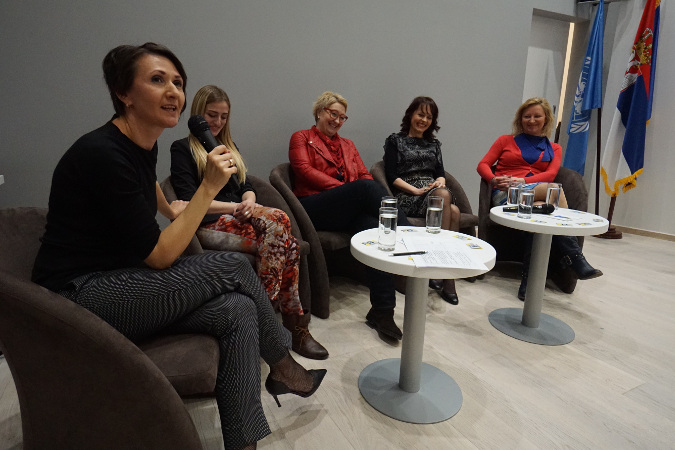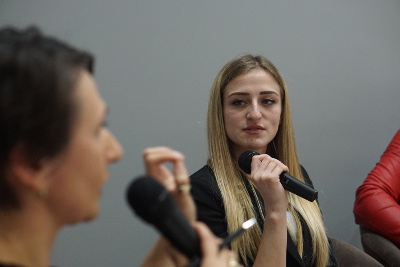Breaking gender stereotypes in Serbia
On the occasion of International Women’s Day, UN and CSO Centre of Modern Skills jointly organized a campaign dedicated to highlighting the unequal position of women in a society, particularly in the areas of labour and employment.Date:

Bringing attention to the inequalities faced by women on a daily basis and to promote women’s rights, leaflets containing data about the gender gap in Serbia were distributed on the streets of Belgrade as part of the campaign. A street survey on what citizens think about gender-based discrimination was conducted. A short documentary was produced with the results of the survey, which was presented at a panel discussion, What is (not) a female job in Serbia?: My job - my right,” organized by the UN in cooperation with the European Union Information Centre.
During the panel discussion, four women who built their careers in typically ‘male’ occupations, namely a pilot, a firefighter, a mountain rescuer and an orchestra trumpeter, discussed their personal experience in overcoming traditional gender roles imposed by the society. Their success stories had one thing in common, persistence in fulfilling professional goals regardless of the pressure by the community.

Danijela Veselinovic, age 22, is the first woman to lead the brass band at the Annual Brass Band Festival in Serbia. She said that she started playing the trumpet at the age of 8, forming a band with her four brothers. At such a young age, being the ‘boss’ of the orchestra was sort of a game, which has later become a great passion and evolved into her profession. As the only girl in this ‘male world’, she talked about gender stereotypes that she were faced with and how she dealt with them with perseverance.
"It is not up to the others to determine what we can or cannot do, but it’s up to ourselves to recognize our potentials and strive to fulfil our goals" was the main message that all four women delivered.
The panel discussion was opened by Zorana Mihajlovic, the Deputy Prime Minister and President of the Coordination Body for Gender Equality, Michel Saint-Lot, the acting United Nations Resident Coordinator in Serbia and Biljana Stepanov from Team Europe Serbia.
“One hundred years ago, women fought to have the right to vote and the right to maternity leave, and today we are fighting to be visible, recognized and paid equally for the same job as men,” said Ms. Mihajlovic. She announced that the adoption of the new Law on Gender Equality will be another step towards the improvement of the position of women in Serbia.